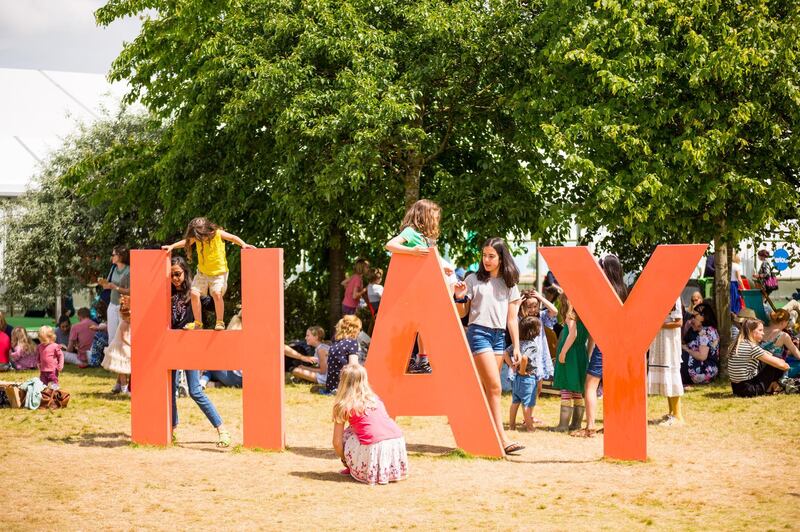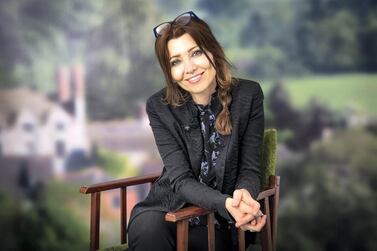More than three decades after Peter Florence and his parents, Norman Florence and Rhoda Lewis, conceived the idea for a literary festival in their small, rural town of Hay-on-Wye, the event has grown internationally, with 180 festivals around the world and an increasingly diverse list of authors at its flagship UK event.
This year, Emirati poet and film director Nujoom Alghanem was invited to speak in the new East-West Divan – just two weeks after she represented the UAE with her video installation, Passage, at the Venice Biennale.
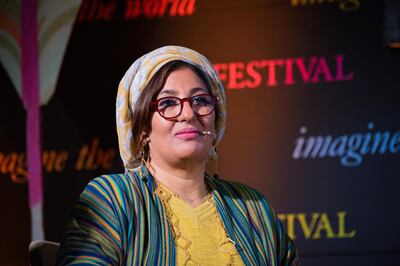
Jokha Alharthi, the first Arabic-language winner of the International Man Booker Prize, travelled to the Welsh borders, too, to speak about her award-winning novel Celestial Bodies, while French-Moroccan novelist Leila Slimani, who won the Prix Goncourt for The Perfect Nanny, entertained a riveted crowd with Philippe Sands.
"The principle of people gathering around a fire or a picnic rug to tell stories and share ideas is universal, and the intimacy of it plays around the world," says Peter Florence, director of Hay Festival, about its international touring programme. "That mixes with a curiosity about the world and its stories. Cooking, music, literature are all both intensely local and universal. We started our journey in Deia, Mallorca, and have adventured around the world from Dhaka in Bangladesh to Cartagena in Colombia, from Nairobi in Kenya to Arequipa in Peru."
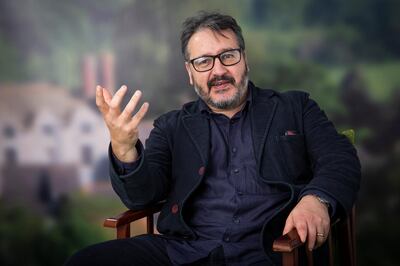
Uncowed by their isle's changeable weather, Britons love nothing more than donning rubber boots and doing outside what the rest of the world happily does indoors – listen to music, read books, watch the rain.
The festival, which now occupies an interlocking series of tents in the middle of a field, first took place in the garden of a Hay pub and in the back room of a local branch of veterans' organisation the British Legion. Community and accessibility have always been key. "Thirty-two years ago, a bunch of us were sitting around my mother's kitchen table in Wales," recalls Florence. "I remember my father talking about poetry and music and ideas. I remember dreaming about meeting heroes and changing minds. My mother said, 'It's got to be a party.' It feels pretty much the same now, though the family has kept growing. It's a collaborative gathering."
This year, a whopping 278,000 tickets for the 11-day festival were sold to an audience hailing from more than 40 countries. In addition to the Q&A sessions and lectures with authors and intellectual leaders, there were events for children – storytelling, craft-making and a forest walk – and numerous attempts at reducing the festival's carbon footprint. One stall sold a deposit scheme for reusable coffee cups; the Woodland Trust, a British charity, gave out trees to plant back home.
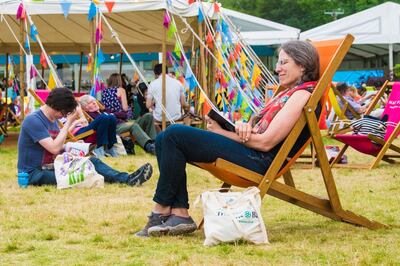
Hay represents the best of Britishness: there's a sense of social responsibility and consciousness throughout. Recent festivals, for example, have responded to the austerity cuts in the UK. "In Wales," says Florence, "as the UK government puts continued pressure on public library services and schoolbook provisions, we have grown our education remit through our free Programme for Schools, Hay Compass, and various projects to give free access to festival writers."
And the discussions benefit from their assumption of a high standard of debate. A man in the audience for a talk on a new book about 12th-century sultan and warrior Saladin challenged the author's portrayal of Saladin's generosity. While the ruler did not execute the inhabitants of Jerusalem after taking it back from the European Crusaders, as was typical medieval practice at the time, the audience member noted that he exacted a ransom per person. The author, Jonathan Phillips, a professor at Royal Holloway, University of London, and the author of six books on the Crusades, countered with details on the transaction. The man appeared satisfied.
The festival returns to Wales next year, with further international events in the offing. It will also pitch up in Croatia with the event Europa28: Visions for the Future, to which the organisers have invited 28 female European writers. The festivals also work to promote the local literary scene of each host country. "We want to blend the very best local writers and thinkers with the world's greatest, says Florence. "That mix is where the magic happens."
